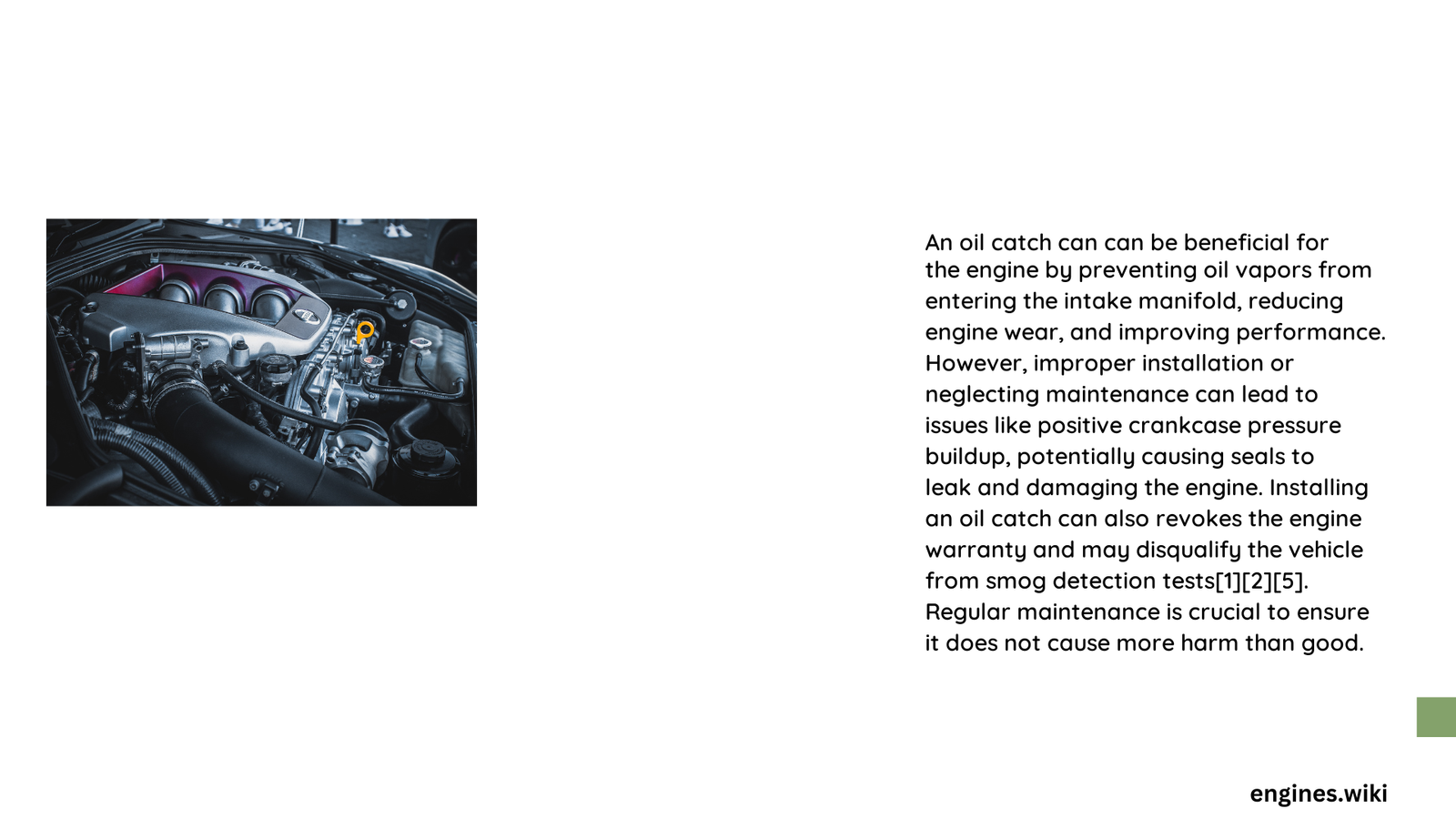Oil catch cans represent a complex automotive modification with nuanced implications for engine health. While they promise potential performance benefits, they also carry risks of improper installation, maintenance challenges, and potential engine stress. Vehicle owners must carefully evaluate their specific engine type, driving conditions, and maintenance capabilities before implementing an oil catch can system.
What Exactly is an Oil Catch Can?
An oil catch can is an aftermarket device designed to capture oil vapors and blow-by gases before they re-enter the engine’s intake system. These devices aim to prevent oil contamination and reduce carbon buildup in modern engines.
Are Oil Catch Cans Harmful to Engine Performance?

Potential Risks of Oil Catch Can Installation
| Risk Factor | Potential Consequence | Severity |
|---|---|---|
| Back Pressure | Increased Crankcase Pressure | High |
| Improper Installation | Turbocharger Damage | Medium-High |
| Maintenance Neglect | Oil System Contamination | Medium |
Key Considerations for Engine Health
- Turbocharger Compatibility
- Not suitable for all engine types
- Higher risk in high-compression diesel engines
-
Potential for oil leaks and performance degradation
-
Installation Complexity
- Requires professional expertise
- Modifications to PCV system necessary
- Incorrect setup can cause significant engine stress
Performance Impact Analysis
Horsepower and Efficiency
- Potential horsepower gains through reduced oil contamination
- Improved combustion efficiency
- Reduced oil consumption rates
Long-Term Engine Implications
- Prevents carbon buildup
- Extends engine oil life
- Reduces potential for premature wear
When Should You Avoid Oil Catch Cans?
Not Recommended For:
- Stock, unmodified engines
- Vehicles under manufacturer warranty
- Engines with minimal blow-by gases
- Vehicles with complex emission systems
Maintenance Requirements
Critical Maintenance Checklist
- Regular cleaning intervals
- Monitoring blow-by gas accumulation
- Professional inspection recommended
- Check compatibility with specific engine model
Expert Recommendations
- Consult professional mechanics
- Evaluate your specific vehicle’s requirements
- Consider manufacturer guidelines
- Understand potential warranty implications
Conclusion
Oil catch cans are not universally bad or good for engines. Their effectiveness depends on multiple factors including installation quality, maintenance, and specific vehicle characteristics. Careful consideration and professional guidance are essential before implementation.
Warning Signs of Improper Oil Catch Can Installation
- Increased oil consumption
- Unusual engine smoking
- Reduced fuel efficiency
- Warning messages related to oil levels
Final Verdict
Recommendation: Proceed with caution, prioritize professional installation and regular maintenance.
References:
1. Car From Japan – Oil Catch Can Guide
2. Evil Energy – Oil Catch Can Insights
3. Bimmerpost – User Experiences
